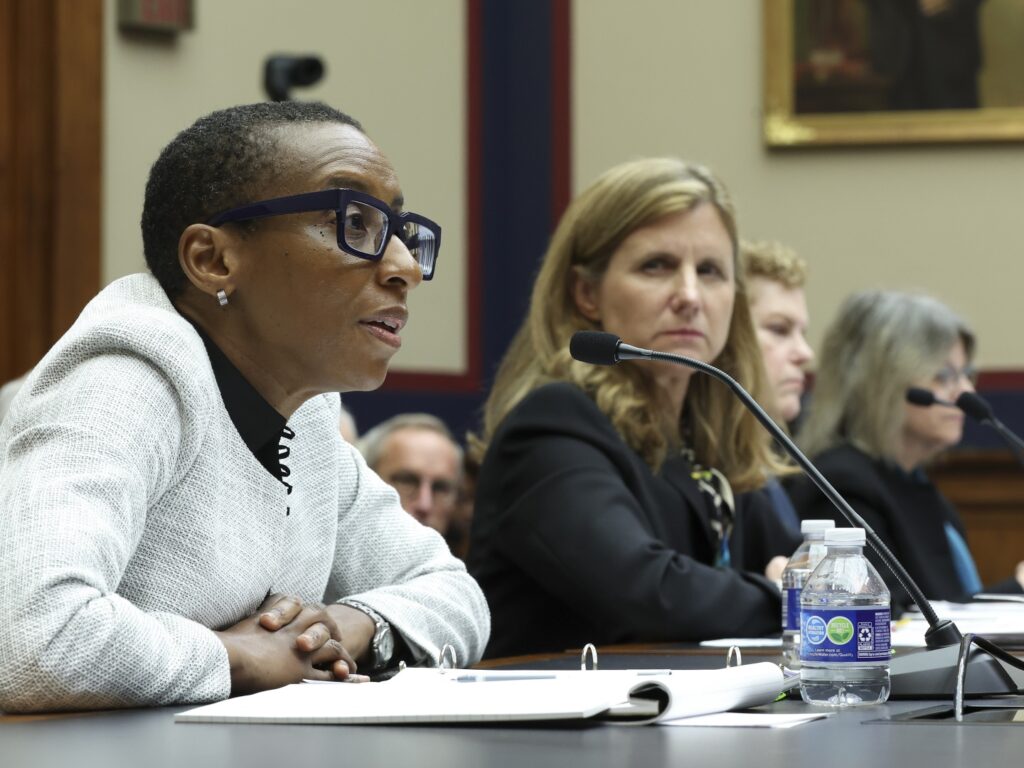Last Tuesday, the president of Harvard Dr. Claudine Gay was excoriated for her performance testifying against antisemitism before Congress. Penn president Liz Magill resigned after the same event.
Arguably, each of these university leaders has great qualities. It’s no small feat to achieve their level of success. So what went wrong in their communication? News outlets say the presidents of Harvard, MIT, and Penn gave only vague responses to the questions asked. But this is not true. Each of these leaders did in fact make their opinions clear. Clarity wasn’t the problem.
Leaders must appear powerful to be leaders. When we look at the events of the past week through the lens of power, we see three errors in leadership communication.
Lack of Action
Foremost, leaders are action-oriented. A series of groundbreaking studies at Stanford showed those who take action are seen as more powerful than those who deliberate.
Action-focus is reflected in our language. In the now-infamous discussion between Dr. Gay and Congresswoman Stefanik, Gay reiterated her position that situations would be evaluated and action taken when students crossed the line of “bullying.” Gay made her opinion of antisemitism clear, so the issue wasn’t her stance. The issue was her lack of proactive action. Gay took a deliberative position.
Contrast Gay’s response to Tulane University president Michael Fitz, who took an unequivocal stance against violence following a “Free Palestine” rally on Tulane’s campus. In his response, Fitz promised more police would be on patrol and warned students to avoid further demonstrations.
Had Gay come out full-force and discussed a series of actions that will be taken against hate speech, she would have been seen as a leader.
Lack of Boldness
Powerful leaders do not protect themselves. In an analysis conducted by researchers at Stanford and UC Berkeley, people with less power constrain their behavior when facing a threat. Spoken differently, the powerless are defensive rather than offensive.
When Penn’s Ms. Magill was questioned by Congresswoman Wild about hate speech, rather than speak on how to address the issue, Magill fell back on Penn policy. She figuratively used policy to hide behind. Policy wasn’t the only hiding spot. All three university presidents were seen to repeat prepared statements, often to the point of sounding canned. These statements reflected a defensive and constrained position rather than an active engagement with the issue at hand.
Contrast these words to that of Tulane’s president Fitz in response to the Tulane rally. Fitz spoke candidly about his school’s values, and then stated he would not hesitate to use those values to hold students accountable. The powerless hide behind policies, the powerful utilize them to move forward.
Lack of Authenticity
On the topic of canned statements, a series of experiments conducted at UC Berkeley found that powerful people speak more authentically. Rather than hide their emotions, which is a reaction to threat, great leaders will speak with the passion they feel for the topic at hand.
Reflecting back on the testimony of the university presidents, there was almost no emotion to be heard. Dr. Gay clearly and concisely condemned antisemitism, but she did so in a monotone voice. Similar statements were made by her peers. To me it felt like we were listening to the recitation of a law book. And this is what most observers around the world were missing – the feeling that these people cared. Even representatives of Congress noted the disconnect, saying that many of the responses were mere “lip service.”
Leaders of institutions do not simply represent the values of the institution, leaders are the embodiment of those values. That embodiment shows up in the way they speak.
Great leaders stand in front, they plant the flag, they show the way. We did not see leadership communication last Tuesday. Instead we saw three individuals deliberating, defending themselves behind policies, and restraining their emotions. When I coach leaders to show up powerfully, we focus on action, on speaking up boldly, and on authenticity.

